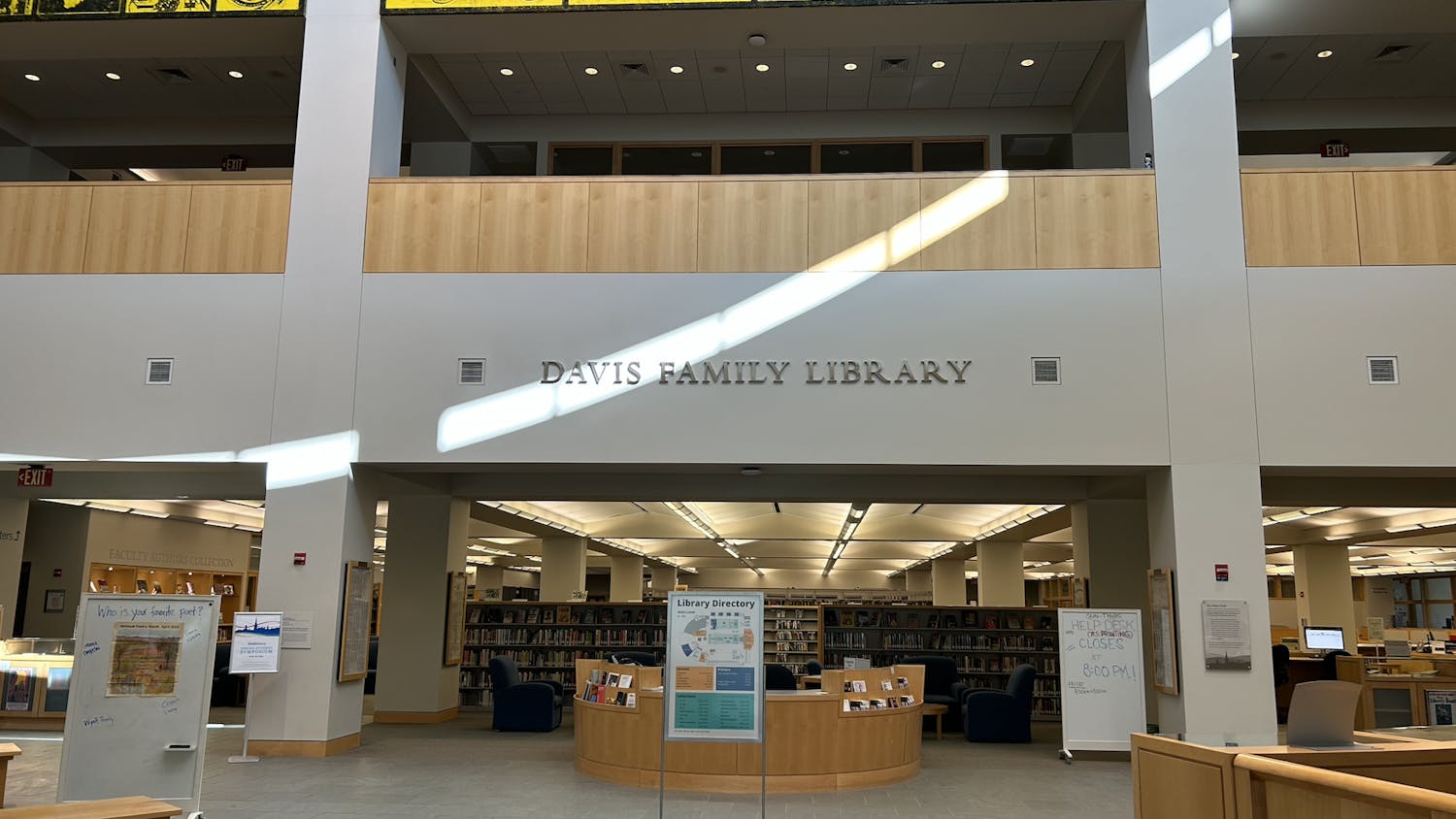During the Covid-19 pandemic, Cole Merrell ’21 wrote a play about three siblings navigating vastly different life circumstances who are brought together by a death in the family and — if that wasn’t enough — a long drive trying to escape a serial killer. Merrell was raised in the Church of Jesus Christ of Latter Day Saints (LDS) and took time off during his Middlebury career to serve as a missionary before coming back to finish his theater degree. The play was informed by his deep knowledge of scripture, the LDS community and the big questions of meaning and purpose central to any person’s life, especially those questioning their faith. During Merrell’s time at Middlebury, the play was only ever read as a script on Zoom and was never produced as a live show. That is, until seniors Zack Maluccio ’23 and Maggie Connolly ’23 got their hands on it.
For most of the play, the set consisted of a few chairs filled by the three siblings arranged in an abstract car shape. Lights and sound effects were used cleverly to simulate turn signals, volume controls and keys turning on the ignition. The siblings referenced the Bible with encyclopedic accuracy and cracked cultural inside jokes about the LDS community, for example, referencing how a missionary’s companion has to stay by their side even when going to the bathroom. The cast consisted of just three students and a local actor from Ripton who played multiple roles, including the serial killer, the children’s dad and random waiters or pedestrians.
For Connolly, the dramas and questions being asked in the play are not just confined to the LDS community but are actually very universal. Her character, Hem, remarks on how she went to college and lost her faith in the LDS Church. Outside the context of the play, Connolly noted how questioning beliefs and worldviews is an experience faced by many college students, and how for her, the play helped her complicate the stereotype of religion.
“Having been raised Catholic, I’ve grown much more comfortable with criticizing the Catholic Church since I’ve been in college. I’ve come to appreciate ways in which my upbringing has made me who I am and added to my life. So, in a way, pointing out the Church’s failures has also given me clarity about the positives I can take away from it as well,” Connolly said.
One theological argument that permeated the play’s plot was a disagreement about the justice of “sins of the father,” a biblical concept where one can be punished for the wrongdoings of past generations. Ollie (Ryan Ulen ’26) described having a beautiful and complex relationship with this tension, and he notes how much he internalized this concept through this acting experience.
“We all suffer from the choices of our ancestors. I think this is most evident with racism; America is suffering from a seemingly-inexhaustible cycle of racial prejudice. As the ending of the play suggests, one must be mindful of and humbled by one's history to cease any wrongdoing that is passed along generation-to-generation,” Ulen said.
The play also incorporated important identities that are difficult to successfully address on stage. Ulen reflected on the ongoing conversation about on-stage representation, given his role as a young autistic boy.
“We all did heavy amounts of research. The most rewarding part of doing this play was unlearning all the stereotypes I associated with autism. I'm humbled and glad to have enlightened myself on the historical and contemporary effects of ableism,” Ulen said.
Overall, the play refused to provide clear-cut narratives about how to interpret religion and morality. As a matter of fact, simplifications of good and evil were not provided by the play, and were instead replaced by blurred lines and intricate truths. One such moment came when Hem, right after denouncing the Church for all the pain it has caused her, continues to receive mystical visions, thus muddling her own stance on religion and faith.
“The visions are a source of confusion for Hem throughout the play, but I think she’s okay with that. The bigger point of conflict that the visions present Hem with is the confrontation with her father. I think it is precisely humans’ inability to know everything that makes religion and spirituality so compelling, and I think Hem is humble enough to recognize that,” Connolly said.




